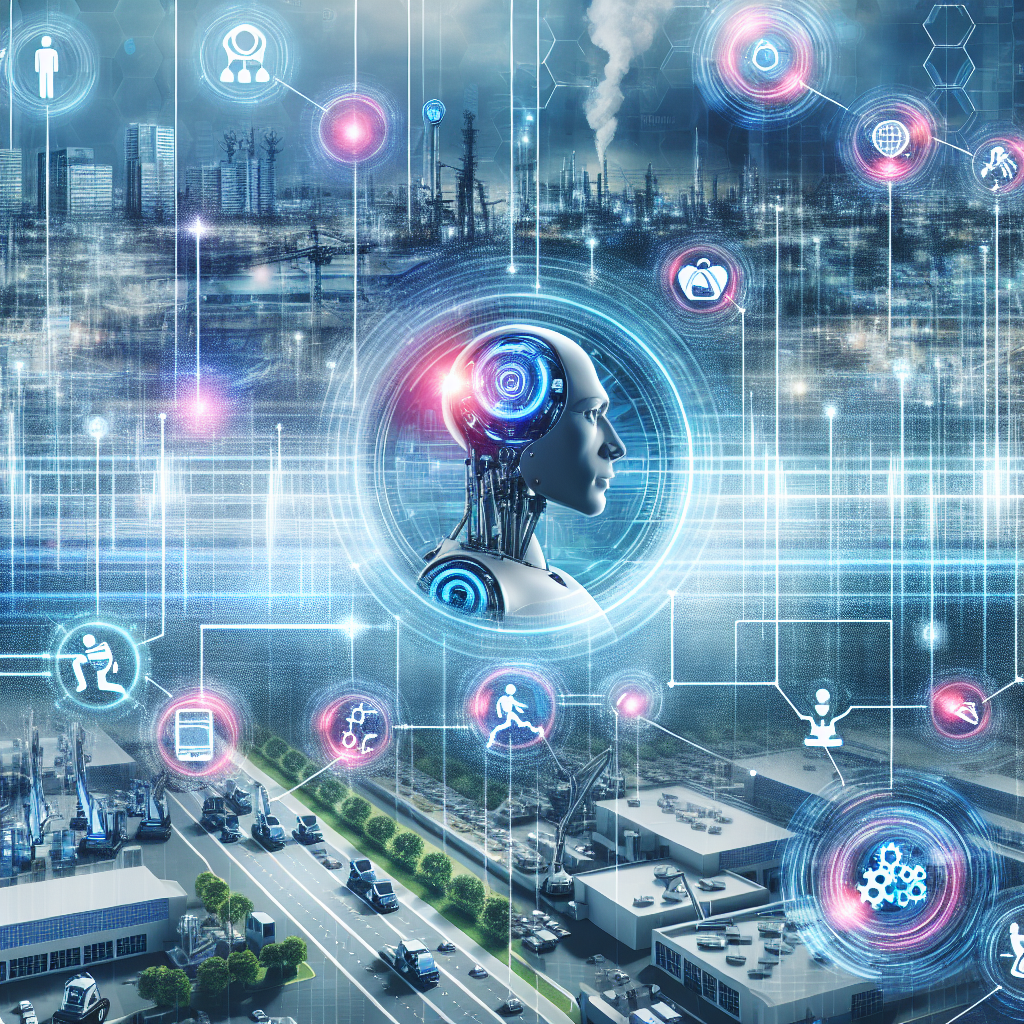Artificial General Intelligence (AGI) is a rapidly advancing technology that has the potential to revolutionize the workplace in the coming years. As automation becomes more sophisticated and intelligent, it will have a profound impact on jobs and industries across the board. In this article, we will explore the implications of AGI in the workplace, including how it will affect jobs, industries, and the economy as a whole. We will also discuss some of the frequently asked questions surrounding AGI and its implications.
AGI, also known as strong AI, refers to machines that possess the ability to think and reason like humans. Unlike narrow AI, which is designed for specific tasks, AGI has the potential to perform a wide range of cognitive tasks at a level comparable to or even surpassing human intelligence. With the development of AGI, we are entering a new era of automation that will transform the way we work and live.
One of the most significant impacts of AGI in the workplace is the potential for mass job displacement. As machines become more intelligent and capable of performing a wide range of tasks, many jobs that are currently done by humans may become obsolete. This could lead to widespread unemployment and economic disruption as workers are replaced by machines. However, it is important to note that not all jobs will be affected equally by automation. Some industries, such as healthcare and education, may be less susceptible to automation due to the complex and nuanced nature of the work involved.
In addition to job displacement, AGI also has the potential to create new job opportunities in industries that are currently underserved by automation. For example, as machines take on more routine and repetitive tasks, humans may be freed up to focus on more creative and strategic work. This could lead to the emergence of new roles and professions that require a combination of technical skills and human creativity.
Another key impact of AGI in the workplace is the potential for increased productivity and efficiency. Machines are able to work faster, more accurately, and around the clock without the need for breaks or rest. This can lead to significant cost savings for businesses and increased output. However, there are also concerns about the impact of automation on job quality and job satisfaction. As machines take on more tasks traditionally done by humans, there is a risk that workers may feel marginalized or undervalued in the workplace.
Overall, the impact of AGI on the workplace is likely to be complex and multifaceted. While automation has the potential to create new opportunities and drive economic growth, it also poses challenges in terms of job displacement, inequality, and social disruption. As we enter this new era of automation, it will be important for policymakers, businesses, and workers to work together to ensure that the benefits of AGI are shared equitably and that workers are able to adapt to the changing nature of work.
FAQs about AGI in the Workplace:
Q: Will AGI replace all human workers?
A: While AGI has the potential to automate a wide range of tasks, it is unlikely to replace all human workers. Many industries require a combination of technical skills, creativity, and emotional intelligence that machines are not yet able to replicate.
Q: What industries are most likely to be impacted by AGI?
A: Industries that rely heavily on routine and repetitive tasks, such as manufacturing, transportation, and customer service, are most likely to be impacted by AGI. However, other industries, such as healthcare and education, may be less susceptible to automation due to the complex and nuanced nature of the work involved.
Q: How can workers prepare for the impact of AGI on the workplace?
A: Workers can prepare for the impact of AGI by developing a diverse set of skills that are less likely to be automated, such as creativity, problem-solving, and emotional intelligence. Lifelong learning and upskilling will also be important to ensure that workers are able to adapt to the changing nature of work.
Q: What role should policymakers play in managing the impact of AGI on the workplace?
A: Policymakers have a crucial role to play in managing the impact of AGI on the workplace. They can help to ensure that workers are protected from job displacement, promote the development of new job opportunities, and support workers in adapting to the changing nature of work.
In conclusion, AGI has the potential to revolutionize the workplace in the coming years. While automation offers many benefits in terms of increased productivity and efficiency, it also poses challenges in terms of job displacement and social disruption. As we enter this new era of automation, it will be important for policymakers, businesses, and workers to work together to ensure that the benefits of AGI are shared equitably and that workers are able to adapt to the changing nature of work.

